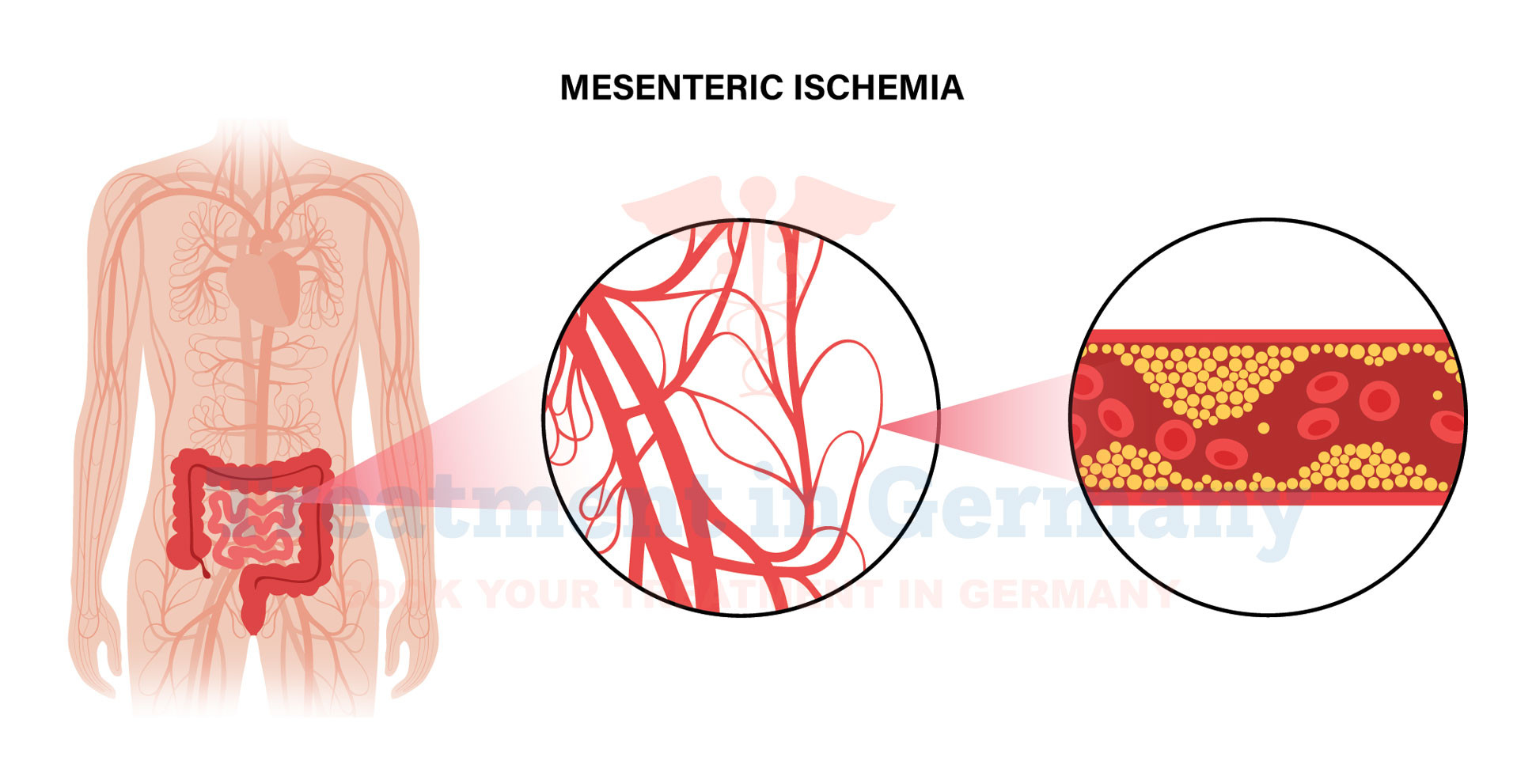What is Mesenteric Ischemia?
Mesenteric ischemia refers to a condition where there is reduced blood flow to the intestines, specifically the small intestine (acute mesenteric ischemia) or both the small and large intestines (chronic mesenteric ischemia).
This reduced blood flow deprives the intestines of oxygen and nutrients, leading to tissue damage and potentially life-threatening complications if not treated promptly.
Side Effects of Mesenteric Ischemia
The symptoms of mesenteric ischemia can vary depending on whether the condition is acute or chronic. Acute mesenteric ischemia often presents with sudden and severe abdominal pain, which may be out of proportion to physical findings.
Other symptoms include nausea, vomiting, diarrhea, and possibly blood in the stool. Chronic mesenteric ischemia typically manifests as recurring abdominal pain after eating, unintended weight loss, and a fear of eating due to subsequent pain.
How is Mesenteric Ischemia Diagnosed?
Diagnosing mesenteric ischemia involves a combination of clinical evaluation, imaging studies, and sometimes invasive procedures. Doctors may start with a physical examination and blood tests to assess for signs of infection or organ dysfunction.
Imaging techniques such as CT angiography (CTA), magnetic resonance angiography (MRA), or Doppler ultrasound are commonly used to visualize blood flow and identify potential blockages or narrowing in the mesenteric arteries. In some cases, an angiogram—a procedure where contrast dye is injected into the arteries followed by X-rays—may be necessary for a more detailed assessment.
Potential Treatment of Mesenteric Ischemia
The treatment approach for mesenteric ischemia depends on whether the condition is acute or chronic, as well as the severity of symptoms and the underlying cause. Acute mesenteric ischemia is considered a medical emergency and typically requires hospitalization.
Treatment may involve medications to improve blood flow, intravenous fluids to maintain hydration, and possibly surgery to remove blockages or repair damaged arteries.
Chronic mesenteric ischemia may be managed initially with lifestyle changes such as dietary modifications (e.g., smaller, more frequent meals) and medications to control symptoms and reduce the risk of clot formation.
In cases where symptoms are severe or do not improve with conservative measures, procedures such as angioplasty (to widen narrowed arteries) or surgery (to bypass blocked arteries) may be recommended.
👉 Contact us for further information and receive a complimentary consultation.


.webp)
 (1).webp)

.webp)
 (1).webp)


.webp)
 (1).webp)

.webp)
 (1).webp)
